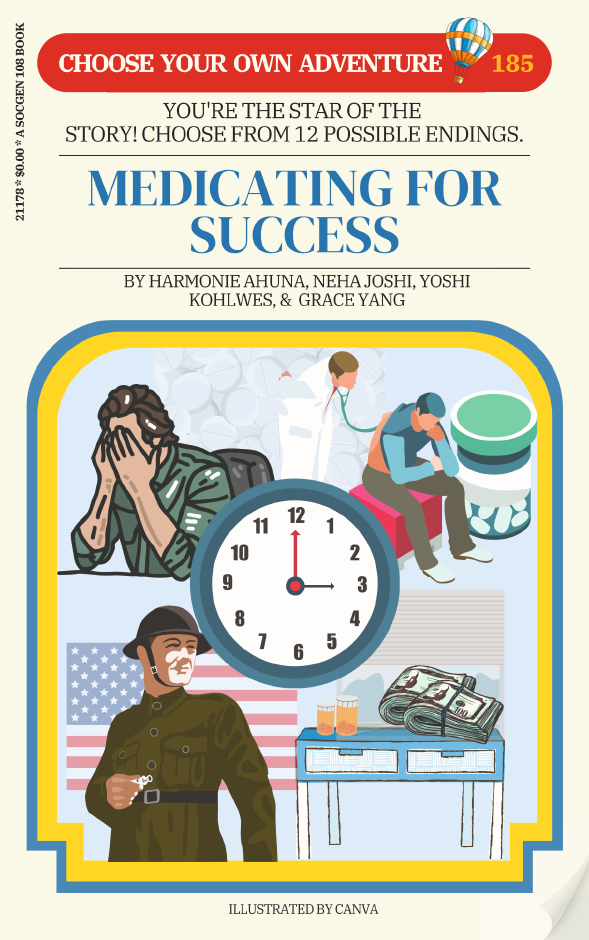Medicating for Success

2nd Place, People's Choice, Spring 2021
By: Grace Yang, Harmonie Ahuna, Neha Joshi, Yoshiko Kohlwes
Prescription amphetamine abuse is America’s epidemic level drug problem that you probably don’t know about.
Neoliberal ideas that have permeated healthcare, education, and the economy are intrinsically linked to American values of individualism, hard-work, and success and represent the driving force behind the creation and sustainment of the epidemic levels of prescription amphetamine abuse in the United States. America’s obsession with prescription amphetamines began during World War II when they were given to soldiers because they were believed to be able to bolster their ability to combat fatigue, overcome pain, and exhibit bravery. Post-World War II, prescription amphetamines were multi-use drugs and were marketed for weight loss, anti-depressants amongst other ailments. However, prescription amphetamines are used today to treat ADHD. When properly utilized, drugs like Adderall are incredibly effective in helping individuals with ADHD manage their symptoms. Unfortunately, however, neoliberal economic policies have infiltrated education policy to create high pressure classrooms in which children are expected to adhere to strict behavioral standards and perform at high testing levels at a young age. Consequently, ADHD is over diagnosed because childhood behaviors are now often viewed as a neurological disorder. In turn, the overdiagnosis of ADHD causes both availability of prescription amphetamines but also socializes the view that they are safe and effective study tools. The socialization of prescription amphetamine abuse also plays into cultural perceptions of drug addiction because users often feel that their use is fundamentally different from other forms of drug use because it is done to better themselves. This dynamic is exacerbated by the neoliberal economic policies that allow for direct-to-consumer advertising of these drugs by big pharmaceutical companies that portray them as a “fix-it pill” for cognitive enhancement which further promotes the idea of safety and holds pharmaceutical companies minimally responsible. Our project is a choose-your-own adventure story in which readers face pressure to illegally use prescription amphetamines throughout our character’s lifetime!
Needless to say, this is a great achievement! I truly enjoyed watching this project evolve, complexify, and then become something unique and wonderful in the history of HBS projects— a really thoughtful and complex combination of detail about a hidden epidemic of amphetamine use, with a sensitive understanding of the choices people make to perpetuate it.. Well done! –Prof. Kelty
comments powered by Disqus